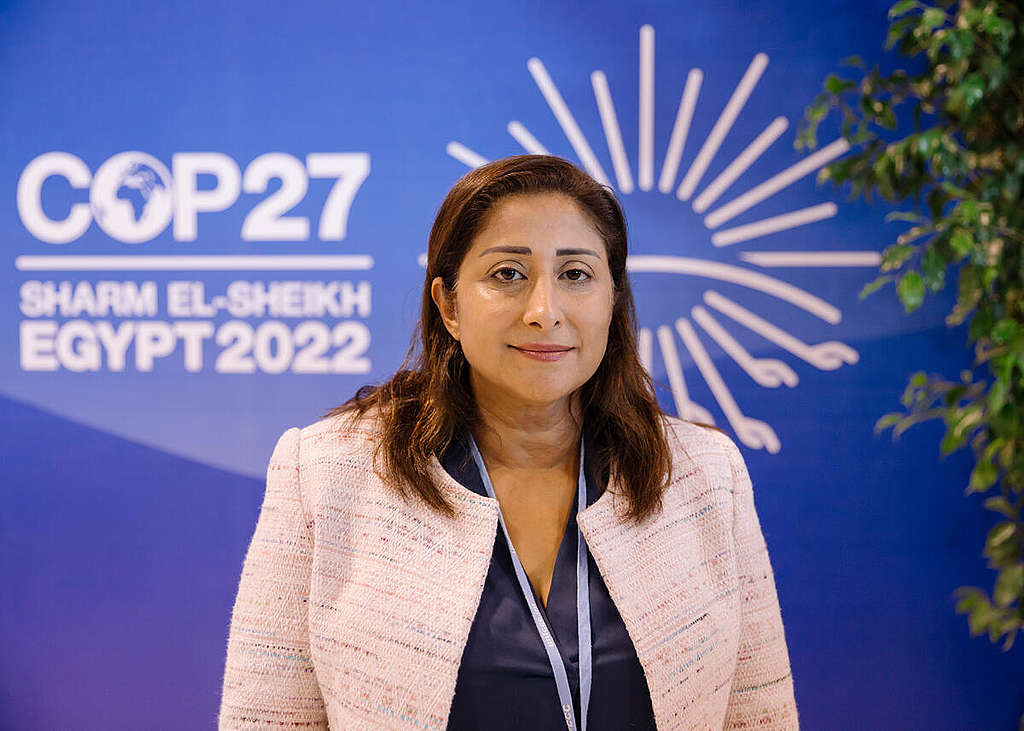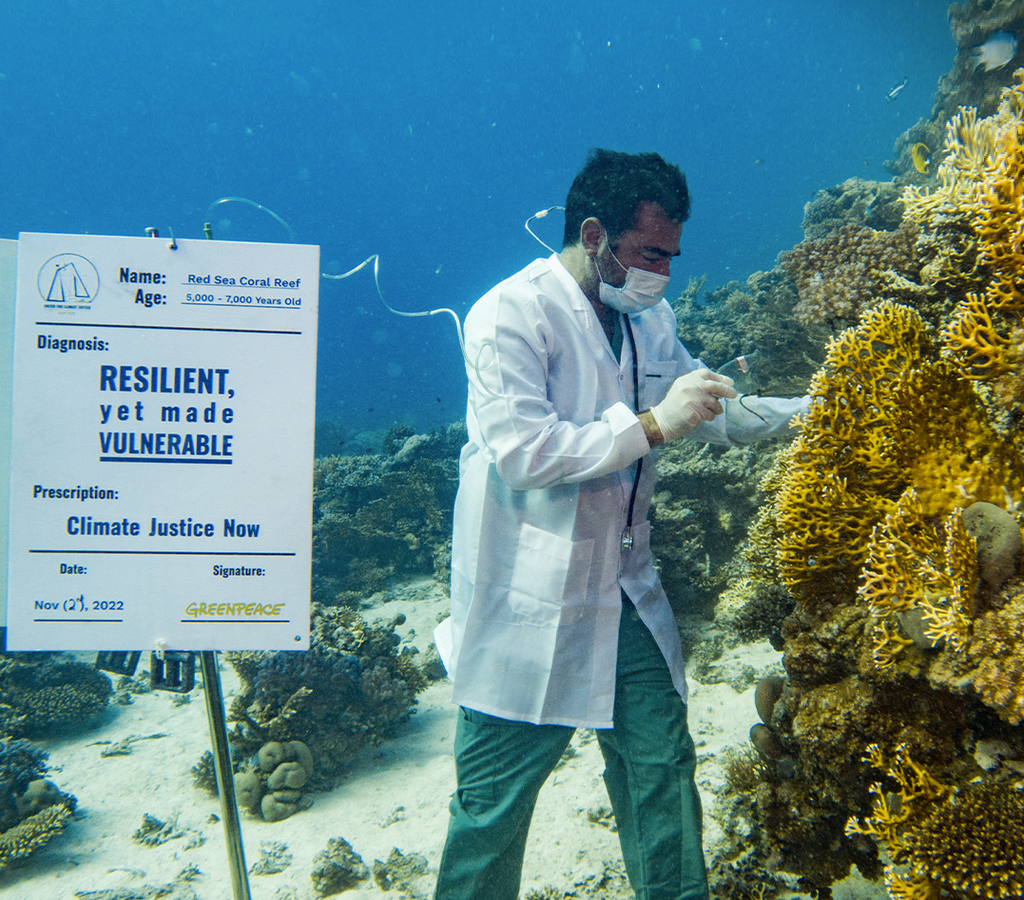
Ghiwa Nakat, Executive Director of Greenpeace MENA, saw at first hand how people and the planet were pushed to the fringes of COP27
As we near the end of the COP27 climate summit here in Sharm el Sheikh, the negotiations are getting more intense.
The COP27 Presidency promised a COP of implementation, raising expectations both of Egypt’s leadership role in the Arab world and Africa, and also the importance of the summit’s outcomes to respond to an existential climate emergency.
Until these final hours, little progress has been made though the clock is still ticking. The ticking heralds not just the end of the COP, but for many vulnerable communities it’s also the time bomb of climate disaster.
This was supposed to be the African COP, spotlighting the people and communities of the Middle East, Africa and the wider Global South. Unfortunately, COP27 was hijacked by the fossil fuel industry. More than 600 fossil fuel lobbyists have attended this summit, more than 25% up on last year and they outnumber any single frontline community affected by the climate crisis. Everyone, especially impacted communities, had hoped that the summit’s outcomes would be dictated by the needs of people and the planet, not the greed of polluters.
We were convinced that a COP on the frontlines of the crisis was an unmissable opportunity to shift the narrative. And a wake up call for the Arab delegations to take a key role in driving climate negotiations in a way that would benefit their citizens.
One major milestone at the beginning of the COP was that Loss and Damage made it onto the agenda after unusually long discussions, late into the night. Then, this week the G77 plus China proposed a text in which they called for a fund for assisting developing countries in meeting their costs of addressing non-economic and economic loss and damage associated with the adverse effects of climate change due to historical and current emissions of greenhouse gases. Today, ministers representing 134 countries of the Global South have called for political commitment to establish a Loss and Damage Finance Facility.
While our homes and our futures are under threat due to climate change’s horrific impacts, richer countries such as the US, New Zealand, Norway, COP31 host hopefuls Australia, and the some EU, are the most visible blockers. These developed countries are the most responsible for the climate crisis, and at the same time they are choking the urgent establishment of a Loss and Damage Finance Facility.
Furthermore, Saudi Arabia negotiators have spent their energy spearheading efforts to jeopardise any progress on mitigation, strongly opposing the affirmation of 1.5°C as the temperature limit and the need to phase out fossil fuels. For far too long, some Arab negotiators have been a blocker of mitigation ambition. This COP did not break that pattern.
A COP decision not building on the foundation laid in the Glasgow Climate Pact would inevitably be criticised as a failure. The goal has not changed. To succeed, the final cover decision of COP 27 must clearly state the establishment of a dedicated financial facility for loss and damage, secure adequate adaptation and green transition funding for developing countries and equitably accelerate fossil fuel phase out in line with 1.5°C.
World leaders need to walk past the corporate booths and ignore the army of fossil fuel lobbyists. They must seek out the voices of those least responsible for climate change and who are facing the greatest losses. Existential issues like the climate crisis demand brave leaders, leaders who are capable of understanding the links between adaptation, mitigation and loss and damage and make the right decisions to ensure our grandchildren inherit a healthy habitable planet.
We need to stay united across the spectrum of civil society, frontline communities, indigenous people and youth. We must resist those who seek to trap us in old destructive patterns, so that we push for courageous decision-making at this COP!
This is only the start. We have a long road of fighting ahead of us.

The Middle East and North Africa is warming at twice the global average – impacts are being seen in communities and the natural world throughout the region.
